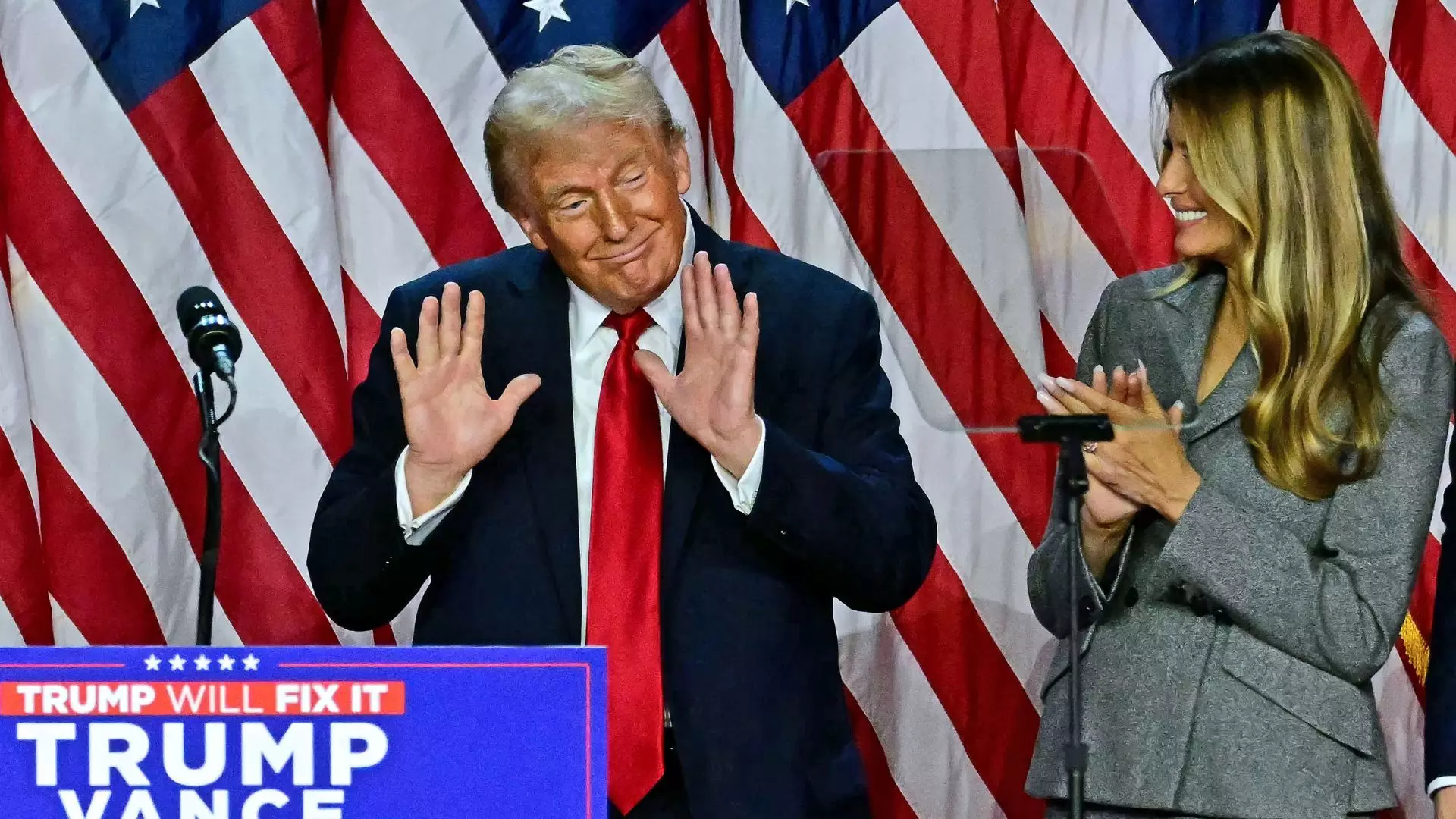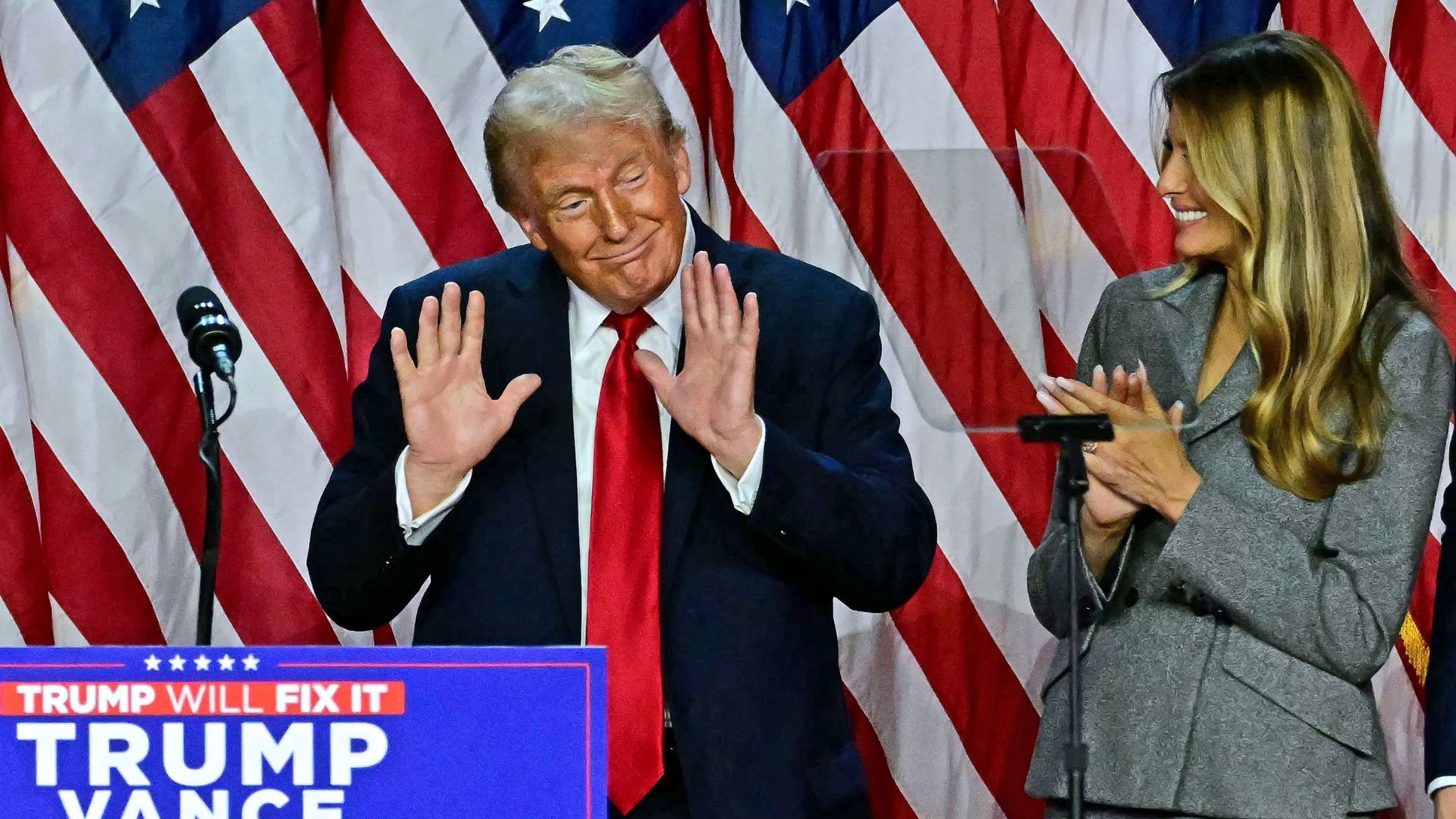
The American presidential election on November 5 has produced a surprisingly clear verdict in favour of former President Donald Trump. His lead in votes in most of the seven swing states varies from 0.87 per cent to 6.14 per cent. The so-called “Blue Wall”, the Democrats’ last line of defence, consisting of Pennsylvania, Michigan and Wisconsin, simply crumbled. With Georgia returning to the Republicans and North Carolina retained by the GOP and the “Wall” collapsing, the Democrats were handed a decisive defeat.
Mr Trump won despite defying his advisers who had urged him to stay on message by talking about the economy, immigration and crime. He rambled and viciously attacked his perceived foes, mixing fiction and innuendo. What some called early signs of dementia was explained by him as a “weave”. His meandering stream of consciousness obviously found acceptance amongst a majority of American voters.
While the post-mortem of the electoral loss suffered by vice-president Kamala Harris will continue for some time, certain elements are obvious. Firstly, when asked by the media if she would have done anything differently, considering the previous four years of the Biden administration, she simply said no. It was an opening to distance herself from President Biden, which she missed. Perhaps she did not want to be seen as ungrateful but with inflation as an important issue, a more nuanced answer would have helped.
Secondly, the fundamental reality prevailed. No party has ever won the presidential election if its incumbent President has favourability ratings as low as Mr Biden’s. A majority of Americans felt the nation was on the wrong track.
Finally, the result establishes that what motivates voters are issues impinging on their daily existence like inflation or a perceived bleak economic future rather than the moral and political failings of a potential leader like Donald Trump.
Significantly, Mr Trump not only wins the popular vote, which he did not when he beat Hillary Clinton in 2016, but has a three per cent vote margin over Ms Harris. It also appears that the Republicans will gain control of both Houses of Congress. With the US Supreme Court already controlled by a right-leaning majority, there will be no constitutional checks on Mr Trump. This has implications for domestic and foreign policy.
One, his choice of Cabinet members can be expected to be idiosyncratic, favouring loyalty and commitment to the Make America Great Again (MAGA) agenda, rather than competence and experience. For instance, appointing Robert F. Kennedy Jr, who is a vaccine and climate change sceptic, to any position concerning those issues could be counter-productive. Similarly, Elon Musk has been advertising about his joining a new Trump administration to be a czar to monitor government expenditure. Private sector theories on rapid cost-cutting can undermine old schemes involving healthcare and social security. The United States government is not Twitter.
This is more than a simple election win. It is a revolution, to complete the right-wing agenda that Mr Trump began in his first term. Addressing his supporters, he called it the “greatest political movement”. He added he plans to “heal” the country. He noted winning the popular vote, calling it “very nice”.
In the field of foreign policy, there shall be some continuity and even change. The Ukraine and Gaza/Middle East wars will need his immediate attention. Israeli Prime Minister Benjamin Netanyahu will be thrilled with Mr Trump’s victory, expecting total US backing for his ruthless and divisive policies. Ukrainian President Volodymyr Zelenskyy, on the other hand, must be a worried man. Mr Trump’s periodic chants of friendship with Russian President Vladimir Putin imply a softening of military assistance for Ukraine. The Nato members have already probably gamed a Trump win. Question remains whether they are ready to fill the gap that weakening US support will create.
The Indian government will treat Trump 2.0 as a manageable development. He used warm words about Prime Minister Narendra Modi while electioneering and even took up the issue of security of “Hindus” in the US and Bangladesh. But there has always to be caution about a Trumpian surprise. One concern for India would be tariffs on US imports. While his primary target is China, he has occasionally mentioned India as a tariff exploiter. Another is how he may handle the alleged Gurpatwant Singh Pannun attempted assassination affair. Basically, he would look at relations with India in the larger context without excessive focus on human rights or freedoms.
Therefore, the US may slowly let the issue be relegated to a New York trial without pushing for greater accountability. That should weaken the Canadian resolve too, especially now that it has become a domestic communal issue in Canada after the “Khalistan” supporters violently protested near a Hindu temple, where Indian consular services were being offered.
Another American decision that can trouble Indo-US relations would be mass deportations of “illegal” immigrants. That means anyone without legal papers. Mass internment and repatriation can create consular problems and huge anti-US public sentiment in India. Hopefully, Mr Trump’s threats will fall short of his actions.
It is good that Sino-Indian relations are back on track before Mr Trump’s China policy unfolds. It is likely that the Chinese had anticipated this scenario, of Mr Trump winning and targeting them, and thus decided to de-escalate with India. One enemy is after all better than two.
Mr Trump, in his post-victory address, called for unity and promised to “turn our country around”. Will he follow up on his rhetoric about even using the Army to punish those who had prosecuted or targeted him. This being his second and final term, he really has two years. If he under-performs or is distracted by revenge and self-aggrandisement, then his party may lose the 2026 mid-term elections. The Republicans could lose control over one or both Houses of Congress, rendering him a “lame duck”. This time, being more experienced, he may listen even less to aides or advisers. His basic instincts are of a businessman and deal-maker. He may mellow his style and look to leave a mark on history. He will discard US transition towards green energy and mitigation of global warming. After all, he withdrew the US from the Paris Accord.
One thing is certain. Every nation today would be analysing the implications of the second Trump presidency. But historical forces can be unpredictable. Like the two wars in Ukraine and Gaza upended President Joe Biden’s foreign policy plans to propagate democracy and address climate change, or the Covid-19 pandemic tripped Mr Trump in 2020, the next “Black Swan” event may well be around the corner.
